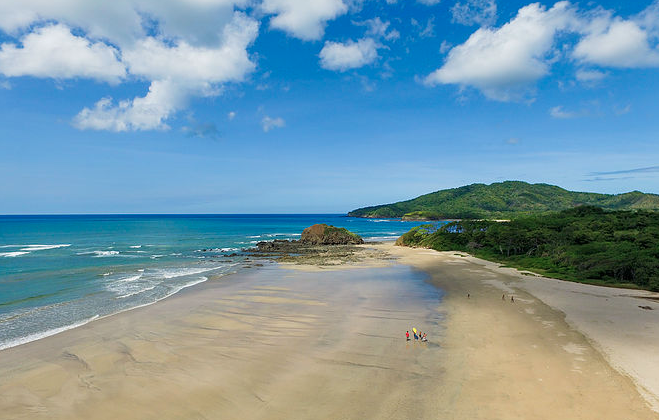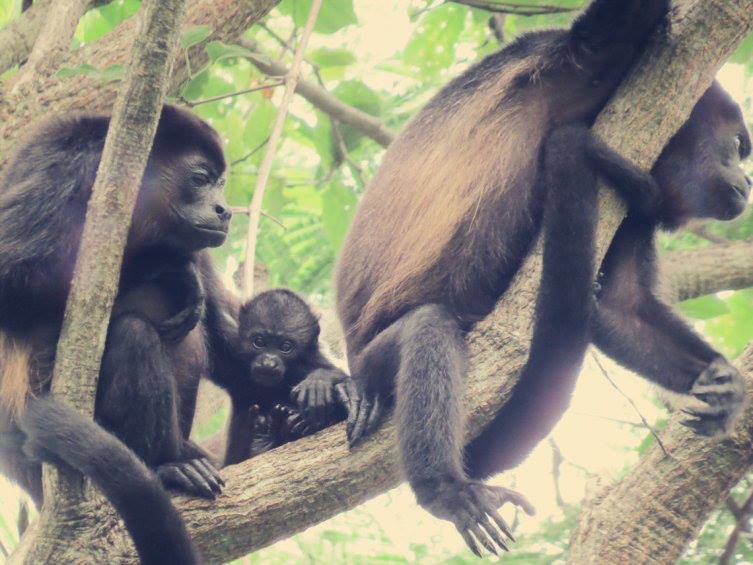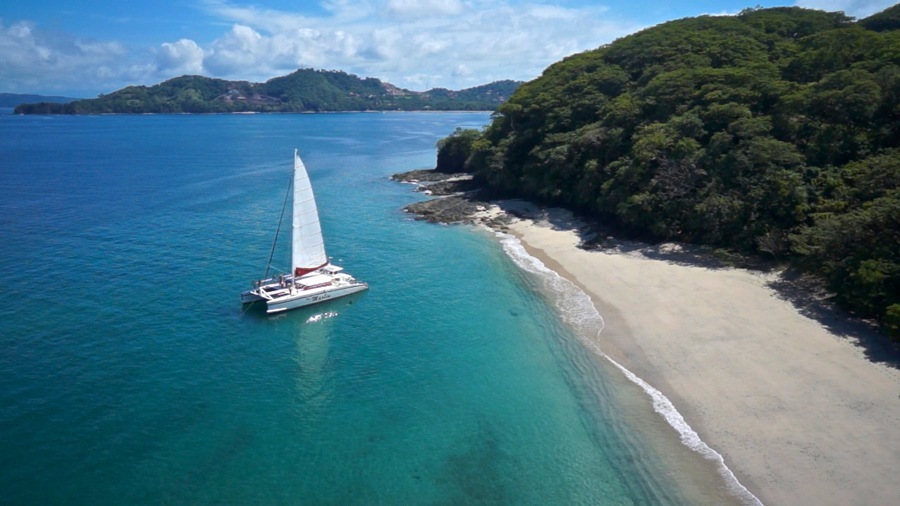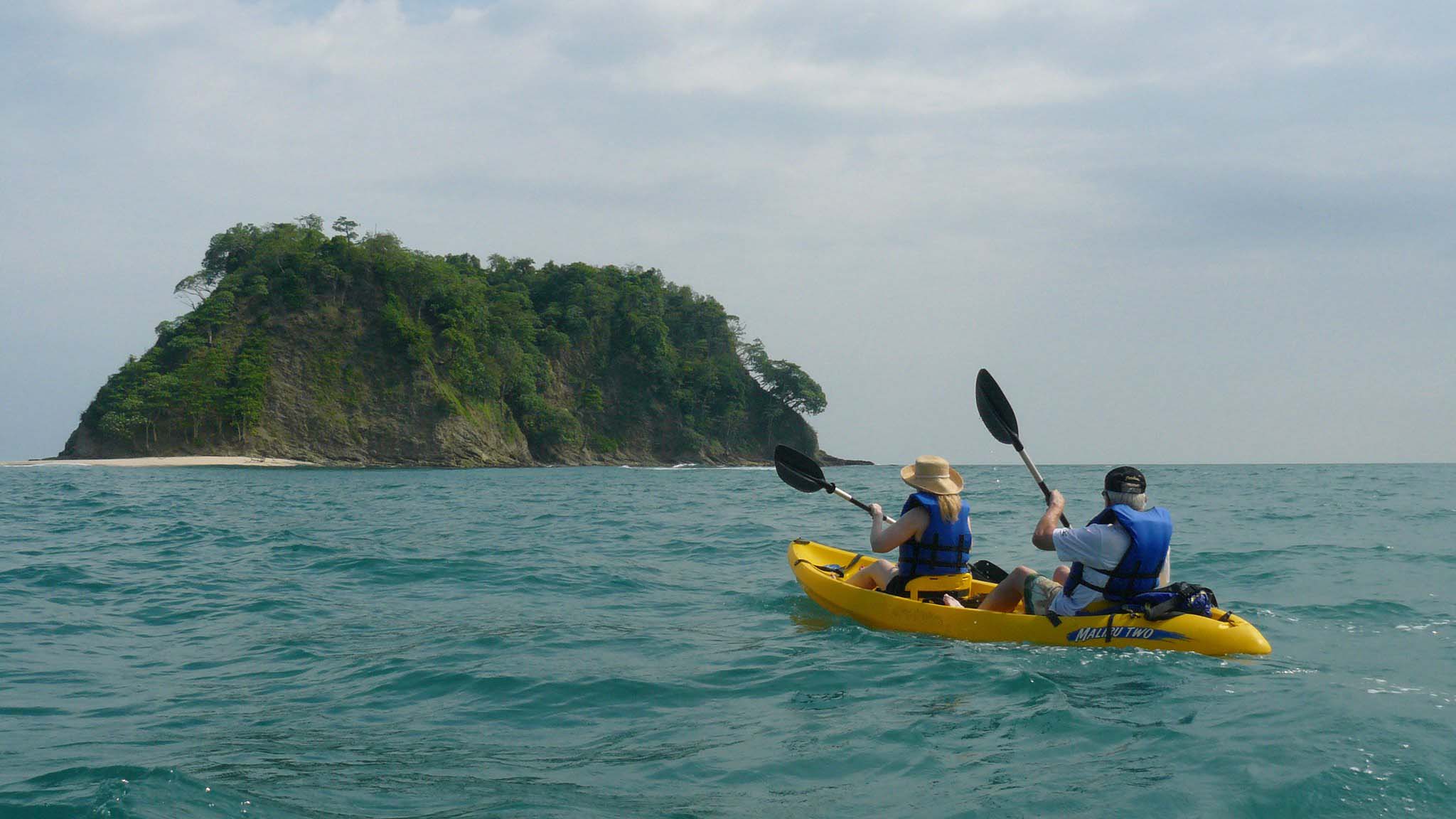Ahhh, the beach. The glorious beach.
Can't you just hear the sound of lapping waves, each tiny crash on wet sand? Can you see the pelicans diving, in search of their next meal? Can you feel the warm sun on your face, your neck, your back? Can you imagine your feet or hands, finally (and perfectly) connecting with a soccer ball or volleyball?
A day at the beach is a day like no other. It's joy. It's a rush. It's total freedom. It's probably why you chose Tamarindo, a beach town located on Costa Rica's famed Gold Coast.
The beach has a special appeal. It makes us feel things. It makes us want to linger a little longer, enjoy a little more. The beach is everything.
And that's why it's our job to help keep it clean. To not only keep our sands free of garbage, but to help make our oceans that way, too. From small lifestyle changes – changes you can make before your trip, and continue long after – to the everyday habits you can adopt while you're here, we're sharing a few of our favorite ways to help keep our beaches clean.
We hope you'll join us in our efforts!

We know, we know – this one's a gimme. Of course we should all clean up our trash. Sometimes, it's not quite that easy, though. You're at the beach. You're having a ball, splashing in the Pacific and building sand castles with your kids. You're sticky from sunblock and tired from the sun. Maybe the wind blows your snack wrapper away. Maybe you get some sand in your eye. Maybe the sun is blinding you. It doesn't matter how it happens, but that it does: Sometimes, a bit of trash gets away from you. The point is to chase it down. Even when you're tired and sticky. Because, every piece counts. Every, single one.
We know, we know – the monkeys and coatis are adorable. But, they're also wild. Key word: Wild. As in, not domesticated. Feeding the wildlife is not only prohibited in Costa Rica, but dangerous. Not only to you, but to the animals themselves. Did you know that most Costa Rican monkeys don't eat bananas (or, not many bananas) in the wild? And, they definitely don't eat potato chips or sandwiches. Ditto our marine life. We know how amazing it would be, to see dolphins beside your boat or a croc up close and personal. But, the reality is that the behaviors that in turn encourage those behaviors – in other words, feeding and incentivizing animals – are dangerous to our precious wildlife. They alter their natural diets and teach them to trust humans. So, if you love animals – and hey, if you're in Costa Rica, you're probably here for the animals – then do them a solid. Don't feed the wildlife.
As with what you leave behind on the beach, we must be careful of what we leave behind in our oceans (and rivers). When you take one of our tours on water, be aware. We're talking about more than not throwing plastic bottles into the ocean or tossing your Styrofoam into the seas: even the tiniest fishing hook or bottle cap can make a difference in an animal's life. (Or even, end its life.) Keep all your trash and detritus on the boat. And remember, if the 90s taught us anything, it was to cut our six-pack wrappers.
The best thing you can do to keep our oceans clean, is to stay current. Teach yourself. Stay informed. Know why and how our beaches and oceans get polluted, in the first place. Tune into a new documentary. Take a book out of the library. Follow the environmental news. Follow the journey of plastic from your home to the sea. Learn about the realities of recycling. Clue yourself into climate change. Open your mind to all the myriad issues. (For example, did you know that underwater noise pollution can harm, and even kill marine life? Better choice begin with you. We really believe that. Help keep our beaches clean!
-
Clean Up Your Trash

We know, we know – this one's a gimme. Of course we should all clean up our trash. Sometimes, it's not quite that easy, though. You're at the beach. You're having a ball, splashing in the Pacific and building sand castles with your kids. You're sticky from sunblock and tired from the sun. Maybe the wind blows your snack wrapper away. Maybe you get some sand in your eye. Maybe the sun is blinding you. It doesn't matter how it happens, but that it does: Sometimes, a bit of trash gets away from you. The point is to chase it down. Even when you're tired and sticky. Because, every piece counts. Every, single one.
-
Take a Trash Bag
-
Upgrade Your Packaging
-
Don't Feed the Animals

We know, we know – the monkeys and coatis are adorable. But, they're also wild. Key word: Wild. As in, not domesticated. Feeding the wildlife is not only prohibited in Costa Rica, but dangerous. Not only to you, but to the animals themselves. Did you know that most Costa Rican monkeys don't eat bananas (or, not many bananas) in the wild? And, they definitely don't eat potato chips or sandwiches. Ditto our marine life. We know how amazing it would be, to see dolphins beside your boat or a croc up close and personal. But, the reality is that the behaviors that in turn encourage those behaviors – in other words, feeding and incentivizing animals – are dangerous to our precious wildlife. They alter their natural diets and teach them to trust humans. So, if you love animals – and hey, if you're in Costa Rica, you're probably here for the animals – then do them a solid. Don't feed the wildlife.
-
Reuse!
-
Skip the Smoke
-
Wear Ocean-Friendly Sunscreen
-
Conserve Water
-
Eat Wisely
-
Be Equally Careful When Boating

As with what you leave behind on the beach, we must be careful of what we leave behind in our oceans (and rivers). When you take one of our tours on water, be aware. We're talking about more than not throwing plastic bottles into the ocean or tossing your Styrofoam into the seas: even the tiniest fishing hook or bottle cap can make a difference in an animal's life. (Or even, end its life.) Keep all your trash and detritus on the boat. And remember, if the 90s taught us anything, it was to cut our six-pack wrappers.
-
Work with Local Companies Who Care
-
Demand Accountability
-
Educate Yourself

The best thing you can do to keep our oceans clean, is to stay current. Teach yourself. Stay informed. Know why and how our beaches and oceans get polluted, in the first place. Tune into a new documentary. Take a book out of the library. Follow the environmental news. Follow the journey of plastic from your home to the sea. Learn about the realities of recycling. Clue yourself into climate change. Open your mind to all the myriad issues. (For example, did you know that underwater noise pollution can harm, and even kill marine life? Better choice begin with you. We really believe that. Help keep our beaches clean!
-
Share What You Know


